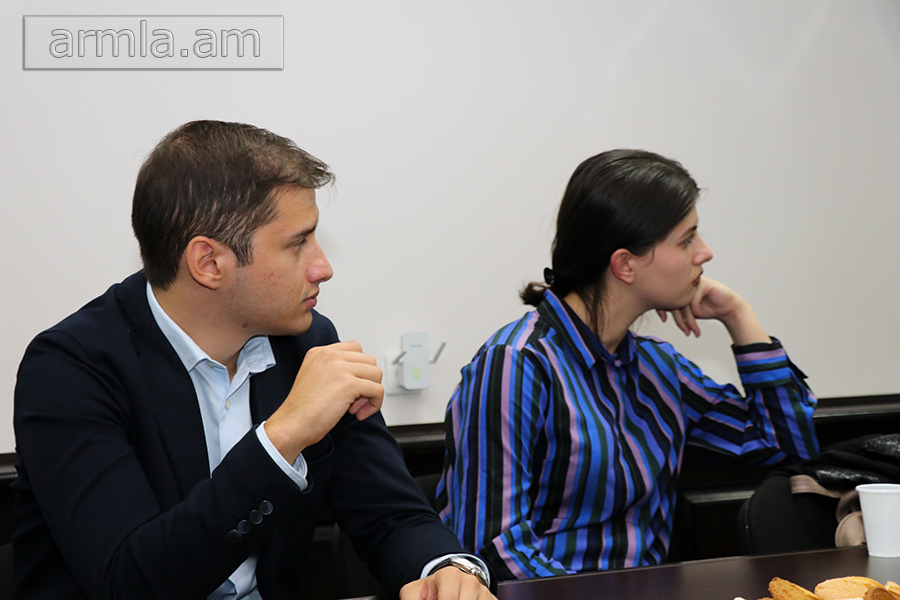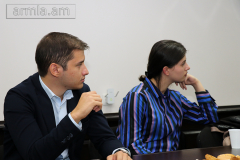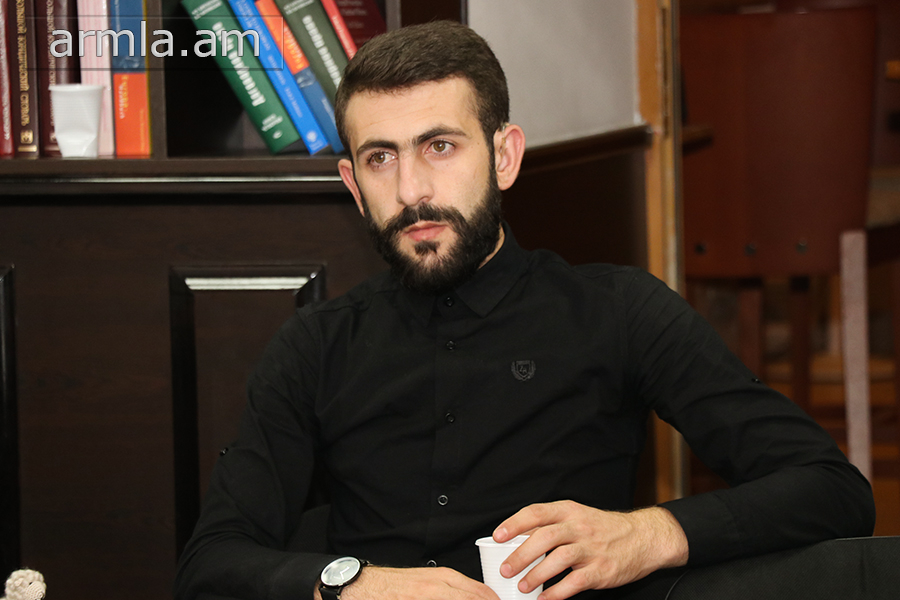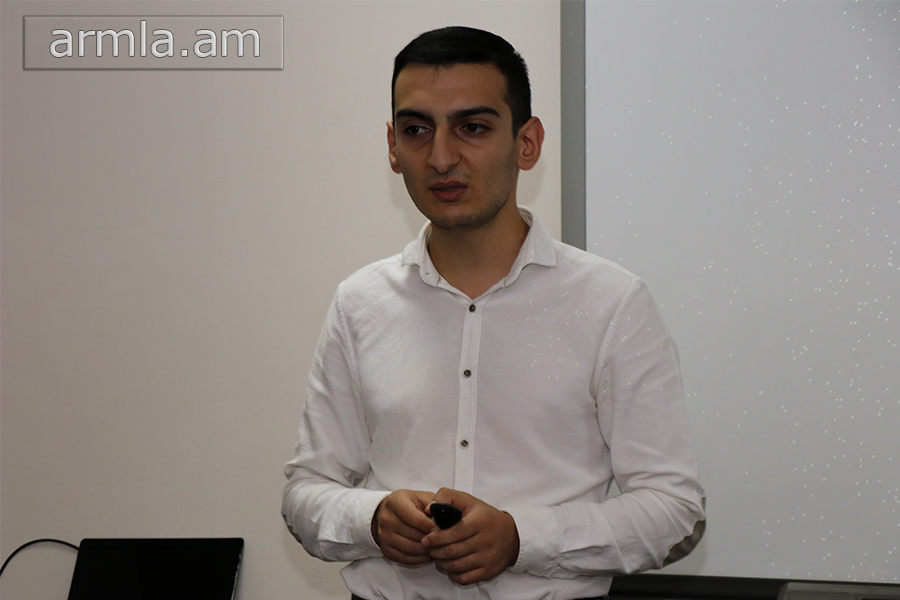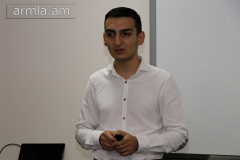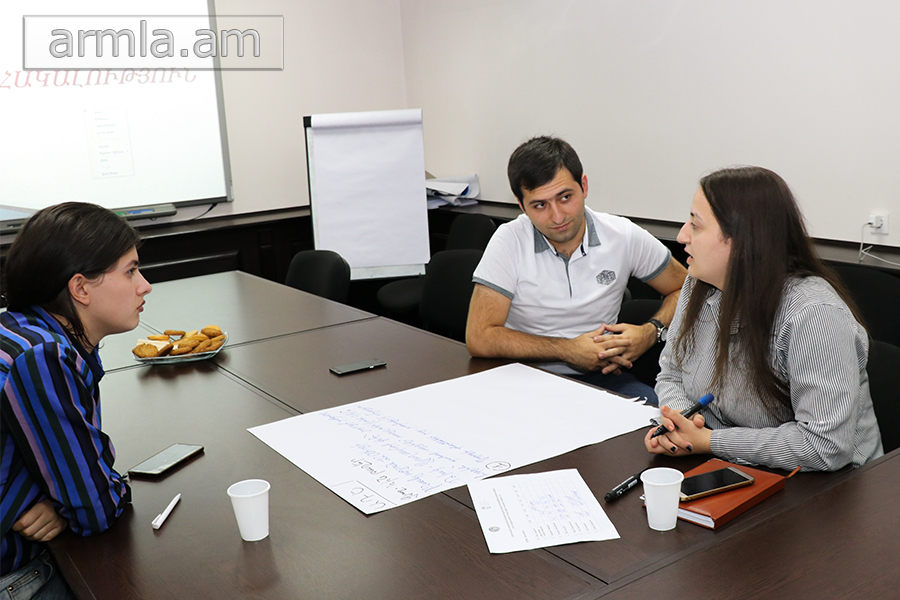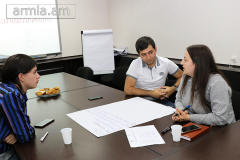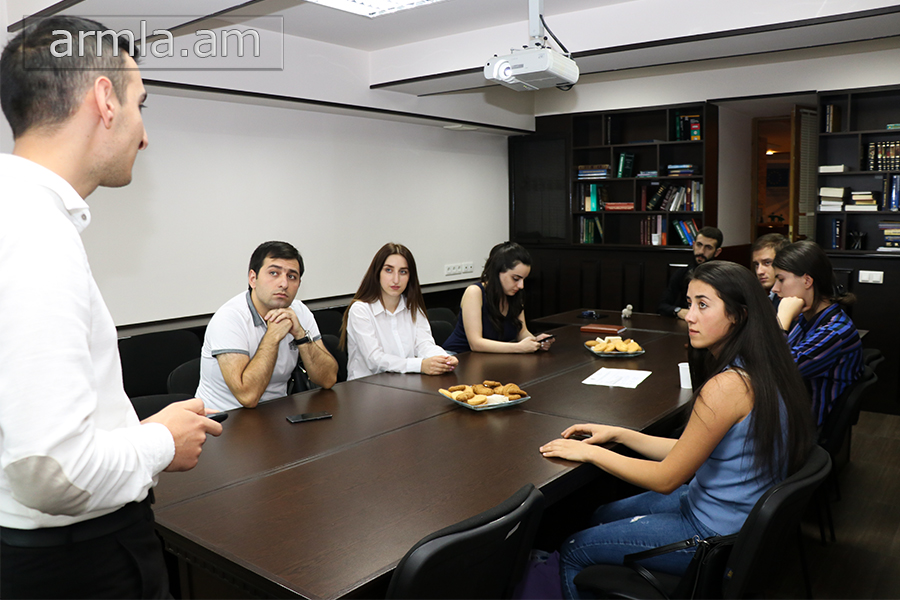
During the regular lesson at the Anti-Corruption School for Young Leaders, participants were acquainted with the introduction of corruption prevention mechanisms in local self-government bodies.
Mr. Narek Yenokyan, an anti-corruption expert at the Armenian Lawyers’ Association conducted the lesson.
The speaker presented 7 steps for the prevention of corruption in local self-government bodies
- Step 1. At the initial stage, a corruption risk assessment process takes place. This process is implemented in two stages. The first stage is the internal evaluation process. At this stage, the LSG staff identifies areas that are most prone to corruption. In the second phase, external stakeholders, in addition to local government staff, conduct assessments. The main purpose of the evaluation is to identify the most vulnerable areas contributing to corruption in the local government,
- Step 2. Areas that are most prone to corruption are identified and steps to reduce corruption in those areas are set out in the Action Plan;
- Step 3. The identified areas are widely studied,
- Step 4: Study the causes and conditions of corruption risks. Actions that give rise to corruption are revealed,
- Step 5. External stakeholders are consulted to identify the factors that give rise to corruption in the local self-government, and recommendations from external stakeholders are separated.
- Step 6. The strategic plan, which outlines the concept of the local self-government in the fight against corruption, strategic goals and actions, appointing responsible persons and deadlines for implementation is finalized.
- Step 7. The community council approves and adopts the strategic plan.
“Corruption is a common occurrence both in the state government system and in local governments. Corruption in LSGs is similar to corruption found in public administration bodies for a number of common characteristics. However, detecting corruption in local governments is a more complicated process, given the local government’s decentralization and the close interconnection of local government workers with the population,” Narek Yenokyan said.
The speaker also noted that the systems of public administration and local self-government in Armenia are underdeveloped and do not meet the standards of good governance, so it is not accidental that international organizations are constantly raising the issue before Armenia.
“According to the 2018 Freedom House Report on Nations in Transit, the local government system in Armenia continues to be ineffective, particularly in small communities. Decentralization in Armenia is subject to certain restrictions, as a result of which local self-government is weak. About one third of the country’s 3 million population live in the capital, Yerevan. Some rural and urban communities are under-populated, which reduces the tax revenues of those communities,” Narek Yenokyan said.
At the end of the training, the students were divided into teams and each presented own version of the struggle for systemic reform and ways of dealing with corruption at the local government.
“The Armenian Lawyers’ Association” NGO is organizing the Anti-Corruption School for Young Leaders in cooperation with the Armenian CSO Anti-Corruption Coalition.
Iravaban.net independent information website is the information partner of the Anti-Corruption School for Young Leaders.







